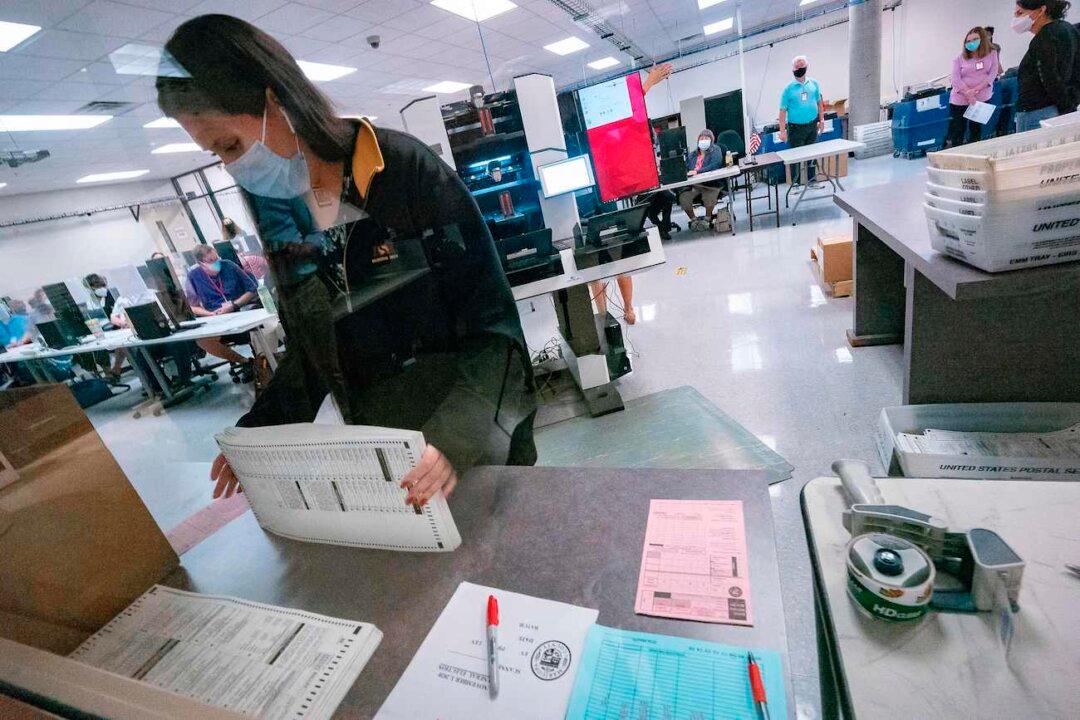The Arizona Senate passed a bill Thursday that would grant the Arizona legislature the authority to subpoena election records like ballots and tabulating equipment, and ignore any laws to the contrary.
The Senate passed Senate Bill 1408 on its third reading in the state’s upper chamber along a 16–14 party-line vote, with Republicans voting for and Democrats voting against.





